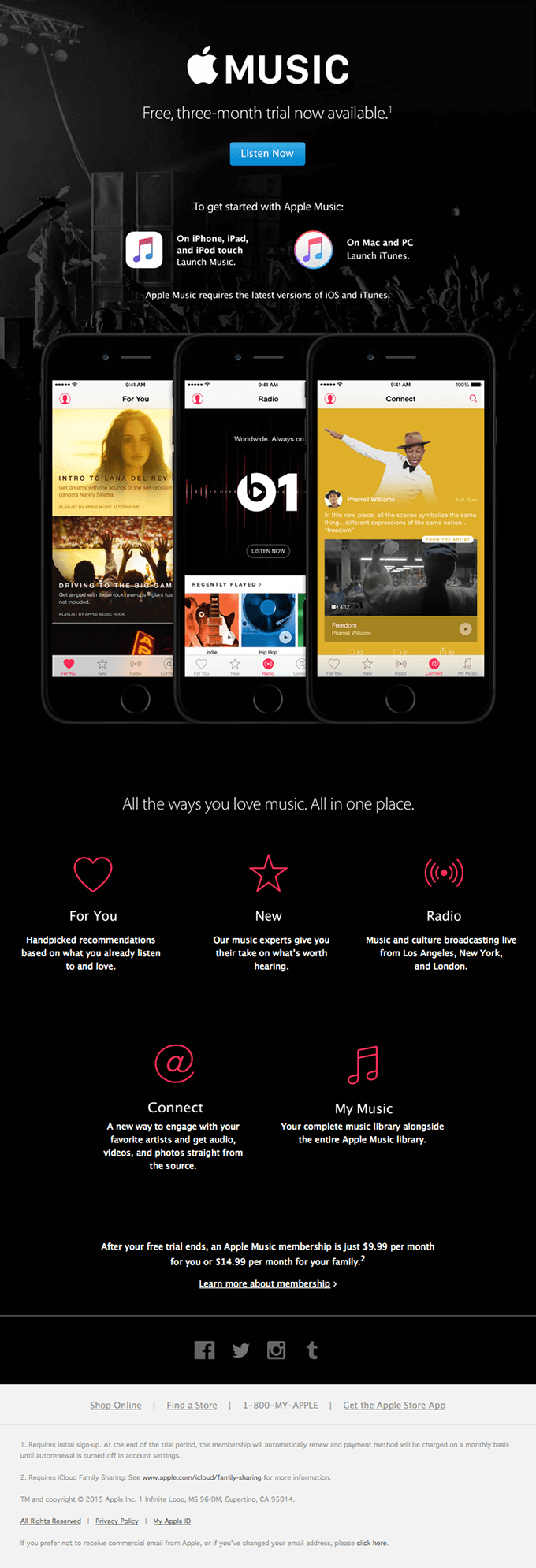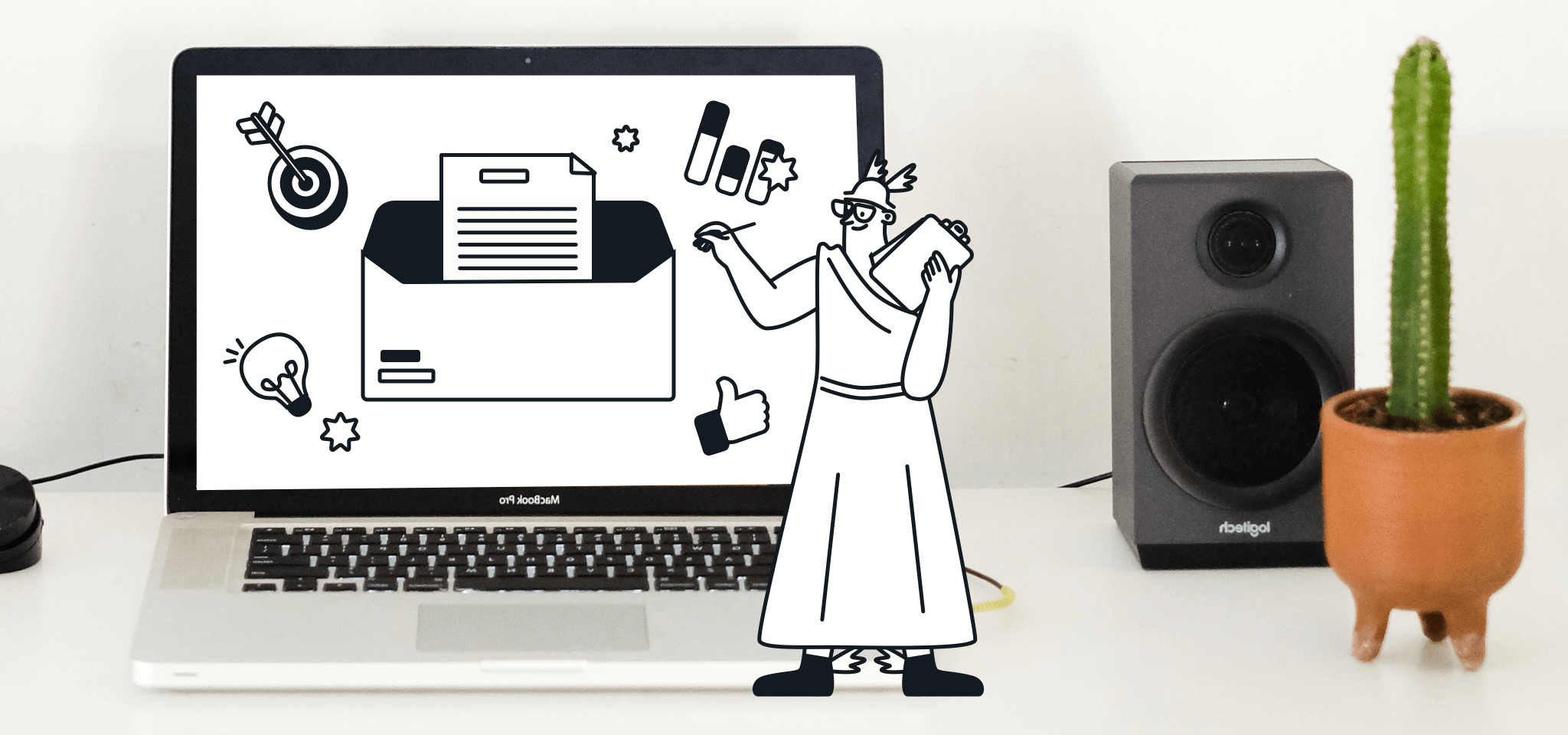Email Best Practices
Millennials and Gen Z: Differences in email marketing
Today, millennials and Gen Z are the largest adult demographic, accounting for 53% of the world’s population. Like any demographic, they have unique characteristics, and a tailored email marketing campaign can address those and increase conversions.

PUBLISHED ON
Millennials are growing up! The generation born between 1981 and 1996 is now 26–41. They're starting families and moving forward in their careers. The next generation, Gen Z, encompasses individuals born from 1997 onward, i.e., from kids still in elementary school to college students and young adults starting careers.
Table of content
What makes millennials unique?
Millennials are the largest adult demographic, with 1.8 million people comprising 23% of the world’s population. Like any other demographic, they have unique characteristics. If marketers design a tailored email marketing campaign, they can increase the conversion rate. More than anything, millennials are well-informed and socially conscious and prefer companies that demonstrate sustainable products and practices.
What makes Gen Z unique?
Generation Z is an even larger demographic, with more than two million members making up about 30% of the global population. Foremost among Gen Zers is racial diversity, with a membership that's 52% white, 24% Latinx, 14% Black, and 4% Asian. Because of that and the social climate they grew up in, the Gen Z audience has more tolerance for differences in race, sexual orientation, and religion.
Compared to millennials, Generation Z is even more technologically fluent, having grown up with social media platforms all their life. Another fundamental quality of Gen Z is financial responsibility. Since they witnessed their parents experience the Great Recession in 2007, they tend to be prudent in financial matters and value stable employment.
With their aptitude for technology and familiarity with social media, Gen Zers conduct extensive research to make informed purchases. Before they decide on a particular product or service, they research many options to find the best one, whether reading a post from an influencer, watching a testimonial, or going through customer reviews. Additionally, they use their purchases to reflect their values, favoring sustainable companies, and are willing to spend more.
Millennials vs. Gen Z: How are they different?
Millennials also came of age during the rapid rise of the internet. Older millennials will still remember dial-up and ethernet cables, while younger ones will remember the launch of the iPhone in 2007. On the other hand, Gen Z has a very different context. They grew up with the internet from their earliest years: They're true digital natives, many of whom take smartphones, WiFi, and constant connectivity for granted.
How does this impact email marketers?
Gen Zers are primarily in their teens. They're hugely tech-savvy and used to filtering lots of information and narrowing it down. They're more likely than millennials to buy from their mobiles and even more interested in entrepreneurship (where they're inspired both by extrinsic and intrinsic factors). Gen Z is also the most diverse generation ever. Socially, there are some striking differences:
Gen Z is more risk-averse than millennials, meaning they’re less likely to try alcohol and more likely to wear a seatbelt.
Gen Z is mostly online – 45% say they're online "almost constantly," with 44% saying they're online multiple times daily. The majority also check their email multiple times per day.
In terms of purchasing:
Millennials tend to value experiences over material things – with brands increasingly turning to special events like Meetups or Amazon's treasure truck.
Millennials don't especially exhibit brand loyalty; they happily try new, innovative brands.
Millennials trust endorsements from their peers.
Gen Z is more engaged with mobile devices and social media than millennials and even less likely to see online advertising. Their attention span is only eight seconds, which is why it's vital to quickly capture their interest.
Gen Z is more likely to use TikTok, Twitter, Instagram, and Snapchat over Facebook and Reddit.
Gen Z is more likely to make impulse purchases, and in-store experiences are still important to them.
Gen Z isn't as concerned about healthy eating or organic produce as millennials; they're more likely to focus on value.
Both generations use email more than you might expect. In fact, many Gen Zers predict that their use of email will increase.
Both generations love to share content online.
Since many Gen Zers aren't yet in the workforce, their parents are likely making the purchasing decisions, which ultimately impacts your email communications.
Challenges marketers face with both generations
Of course, millennials and Gen Z are hardly different species. Whichever of these generations you're marketing to, you're likely to face some common challenges:
They use Adblocker. Your customers may never see your online ads because they're blocking them. This is even more common with millennials than Gen Z, although the latter is more aware of ad-blocking options on mobile.
They hate clickbait. Both millennials and Gen Z quickly catch spammy techniques, and neither generation is ever impressed by clickbait-y headlines.
They know their inbox space is only theirs. Gen Z and millennials will be quick to hit "unsubscribe" if they feel spammed. As email marketers, give them the option to select how often they want to hear from you.
They're focused on mobile-friendly and convenient options. You won't make many sales if your website isn’t mobile-optimized.
They value their privacy. Both millennials and Gen Z will be put off if you ask for unnecessary personal information (e.g. signing up for email newsletters). Gen Z members are particularly reluctant about sharing personal information.

Will they still use email?
The simple answer is yes. Email is still hugely popular, and it's not showing any signs of going away just yet. It’s still essential to a marketing strategy. In fact, email remains the preferred channel for marketing communications for both millennials and Gen Z. Despite many scare stories about "the end of email," 85% of Gen Z prefer using email over other communication channels. This figure is estimated to increase as more Gen Zers enter the workforce. Many check their email multiple times a day.
This is great news because email has significant advantages over other channels for marketing communications.
Emails facilitate easy personalization of messages at a mass scale. They give marketers the opportunity to reach the right person at the right time with the right message (with the option to segment email lists based on customer behavior).
Emails are more lasting than other marketing communications. You can revisit old emails repetitively, but push notifications and social ads vanish quickly, or at the very least, are tricky to find again.
Emails can be any length you want. You can include as many (or as few) images as you want; your marketing messages aren't limited by the format in the way that they are on social networks.
7 email marketing best practices for millennials and Gen Z
While millennials have seen the advent of the internet, Gen Z has seen it evolve to a newer dimension. As marketers, it’s your responsibility to send emails keeping in mind the unique characteristics of these generations. Here’s a list of tips you can use to market these demographics:
Emphasize your company's environmental or ethical credentials. Both generations increasingly value the environment – with Gen Z being, if anything, even more engaged than millennials about climate change.
Don't ask them to share a lot of personal information. While millennials are generally relaxed about this, Gen Z is likely to be more reserved and cautious.
Be sincere and direct – Gen Z, in particular, will appreciate this. They neither like being talked down to nor sold to in a pushy way.
Don't force a loyalty program. While this could work well with Generation X, millennials and Gen Z don't particularly exhibit brand loyalty. They may be put off by the implication that you take their loyalty for granted.
Offer social proof. This is great for millennials but even more important for Gen Z, who are most likely to trust reviews from peers. For instance, you can include screenshots of Facebook reviews in your emails.
Optimize for mobile. More than 50% of millennials and Gen Zers use their phones to check emails, at a rate of 59% and 67%, respectively. Because of that, it's vital to design responsive digital marketing communications that load correctly on any device. If not, you may miss out on a significant number of click-throughs.
Segmentation is key. Today, it's essential for customers to feel special and receive personalized emails. For that reason, segmenting an email list into specific categories helps tailor your content and ensures people open and interact with your messages. You can analyze user statistics, pick an approach (location, gender, interests), and then send personalized content.
A few final words
While there are some differences between millennials and Gen Z, the key to marketing to both generations is to be open, honest, and ethical. Don't talk down to them or patronize them. Ensure it's as easy and convenient for them to buy as possible. And, if you have any wondrous marketing techniques, be sure to share them with the Mailjet community by tweeting us @Mailjet.








